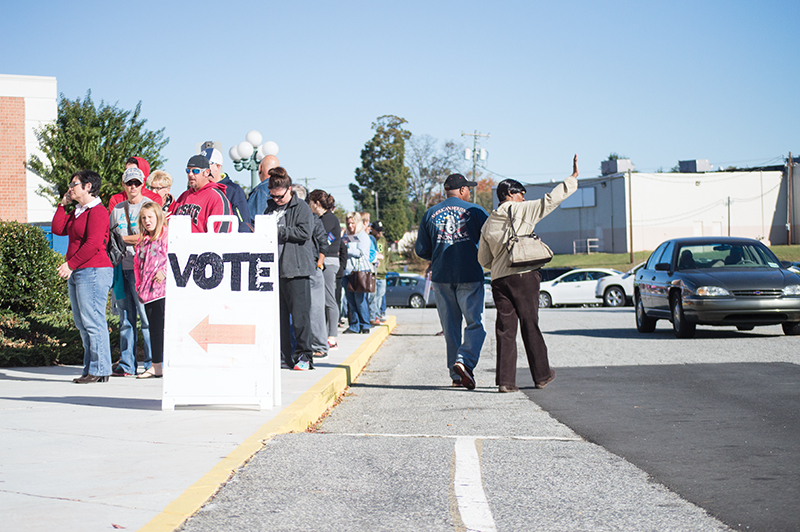Editorial: Separate mayor’s race not only reform needed
Published 12:00 am Thursday, July 18, 2019

- A pair of voters walk out of the Rowan County Board of Elections office after casting their vote in 2016.
The Salisbury City Council took a small step toward a much-needed, separate mayoral race on Tuesday night.
But there’s more reform to do.
The council voted to begin a process that could add a referendum to November’s ballot asking voters to weigh in on having a separate race. As proposed Tuesday, the council would have a public hearing in early August and decide by Aug. 20 about whether to put the referendum up for a vote this year. Presumably, the council would then move forward with creating a separate race in time for the 2021 election if a majority of voters favor the change.
As proposed presently, the separately elected mayor would have all the same rights as a council member and serve two years. Whereas some mayors only vote when there are ties, Salisbury’s would retain his or her vote on all matters. The mayor also would continue to count for the purposes of determining a quorum.
The change would once and for all remove the possibility of an accidental mayor — someone who signs up only to run for council, receives the most votes and, by virtue of a polite tradition, becomes Salisbury’s mayor.
The Post has long said that the person who serves as mayor should not be the result of a polite tradition and, instead, a choice made by voters.
We firmly believe a majority of voters would prefer to directly vote for a mayor than hope their top choice for council receives the most votes. If council members feel comfortable confirming that through a referendum on the ballot, so be it, but the separate race should not be the only item the council considers as it debates reform.
The 2021 election should also be one in which Salisbury City Council members consider implementing four-year terms (To stagger the terms, some members would only be elected for two years in 2021). That includes the mayor, too.
Through staggered, four-year terms the City Council, individually and as a group, would have room to more frequently pursue ambitious projects without a re-election campaign looming just two years in the future. Staggered terms also would provide stability in the mayor’s slot, which has seen four officeholders in five elections (10 years) — Susan Kluttz, Paul Woodson, Karen Alexander and Al Heggins. Incumbent council members now filing for re-election were just sworn in a year and a half ago.
With a separate mayor’s race and staggered terms, a council member might take a shot at the mayor while being able to retain his or her seat, said Mayor Pro Tem David Post.
While that’s certainly a possibility, it should not prevent the council from pursuing four-year terms. In China Grove, it’s happening now — Mayor Lee Withers is being challenged by Councilman Charles Seaford — and it happens at other levels of government, too. U.S. senators, for example, frequently run for president with time left on their term.
Councilman Brian Miller on Tuesday said he was uncomfortable pushing forward quickly with the separate election referendum and staggered terms at the same time, adding that they were “seismic changes.” And that’s OK.
Because a referendum simply asks for the public’s position on a separate mayoral race, the council should complete the process they started Tuesday. And it should continue its debate about implementing staggered terms in time for 2021.


